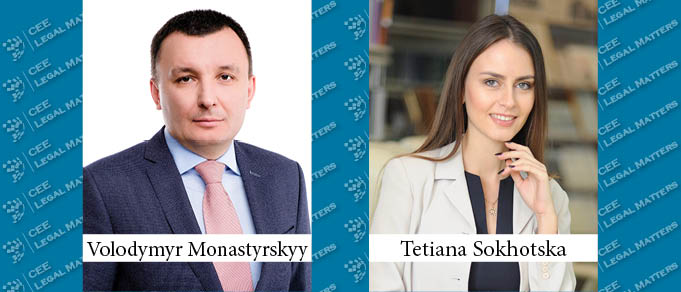On July 19, 2022, Law of Ukraine No. 2352-IX On Amendments to Certain Legislative Acts of Ukraine, Governing Optimization of Labor Relations entered into full force and effect and amended the Code of Labor Laws of Ukraine (the Labor Code), the Laws of Ukraine On the Organization of Labor Relations under Martial Law, On Leaves, and others.
Below we bring you a summary of the main amendments that the employer should be aware of.
Salaries of mobilized employees
Employers now are not obliged to pay an average salary to employees mobilized for military service, but the employees shall remain employed and continue to hold their positions (part three of Article 119 of the Labor Code). Previously, the employer had to continue to pay such employees’ average salaries for the entire period of the employee’s military service.
Secondary employment
Secondary employment is now allowed for an employee at the employer’s primary place of work (Article 102-1 of the Labor Code). Previously, this was not a possibility.
New grounds for terminating employment:
-
Death of an employer who is an individual or entry into full force and effect of a court decision whereby such individual is recognized as missing or declared dead (section 8-1 of Article 36 of the Labor Code);
-
Death of an employee, his/her recognition as missing or declared dead in accordance with a court decision (section 8-2 of Article 36 of the Labor Code);
-
The employee’s absence from work and lack of information regarding the reasons for such absence for more than four consecutive months (section 8-3 of Article 36 of the Labor Code);
-
Impossibility of providing an employee with the work specified in the employment agreement, due to the destruction (lack) of production, organizational, and technical conditions, means of production or property of the employer as a result of hostilities, when it is impossible to transfer the employee to another position (Article 41 of the Labor Code). The employer must notify the employee of dismissal no later than 10 calendar days prior to such dismissal (Article 49-2 of the Labor Code) and pay severance pay amounting to no less than the employee’s average monthly salary (Article 44 of the Labor Code).
Timeframe for service of notification about changes in key employment terms
During the period of martial law, employees must be notified of a change in essential employment terms no later than prior to introduction of such new terms (part 2 of Article 2 of the Law on Organization of Labor Relations under the Martial Law). Previously, the Law previously allowed the employer to change the essential employment terms “on a same-day basis.”
Changes related to suspension of employment agreement
In the event a decision to cancel suspension of the employment agreement is adopted, the employer must notify the employee of the necessity to return to work 10 calendar days before resumption of the employment agreement. Previously, it was not required to serve this notice.
Duration of annual leave
The employer has now been granted the right to independently decide, whether or not to limit the employee’s annual basic leave to 24 calendar days for the current working year during the period of martial law. At the same time, if an employee was supposed to have a longer vacation period than 24 calendar days, then those unused days can be used after martial law has expired or been cancelled.
In addition, during the period of martial law, the employer may deny the employee’s request for unused days of annual leave. However, if an employee is dismissed during the period of martial law, he/she must be paid monetary compensation for all unused days of annual leave in accordance with Article 24 of the Law of Ukraine On Leaves. In the event of an employee’s death, compensation for unused annual leave days is paid to his/her family members, and in the event of their absence, it is included into the employee’s estate.
By Volodymyr Monastyrskyy, Partner, and Tetiana Sokhotska, Associate, Dentons


